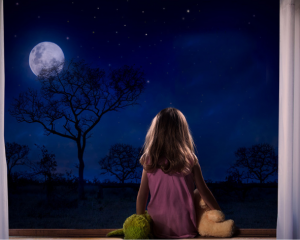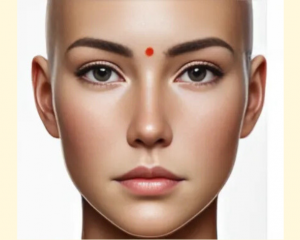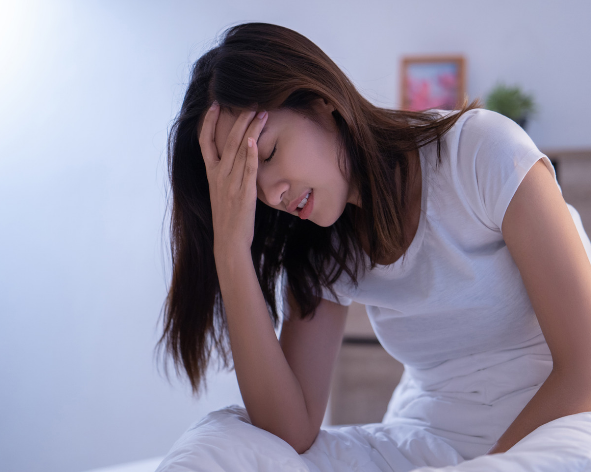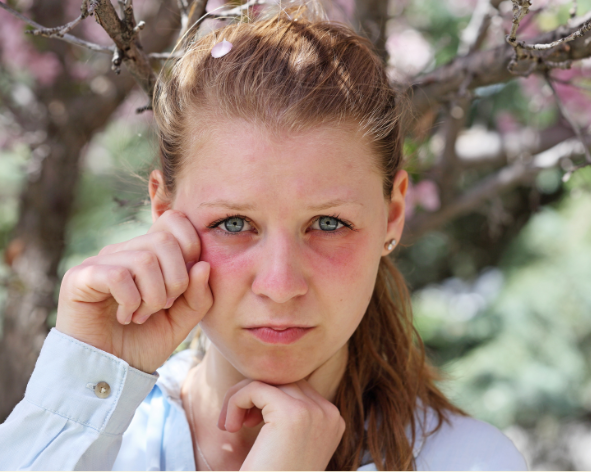The full moon has a captivating beauty, but it can also be linked to some surprising challenges, especially for our sleep. Many people find their sleep disrupted during the full moon, reporting restlessness, vivid dreams, or even waking up frequently. But why does this happen, and what can you do to rest peacefully? Let’s explore this together.
Why Does the Full Moon Affect Sleep?

The connection between the moon and sleep has been explored in both scientific studies and TCM traditions. Some of the most common theories include:
- Increased Light: Even if you sleep indoors, the increased brightness of the full moon can interfere with your circadian rhythm, tricking your body into thinking it’s still time to be awake.
- Hormonal Shifts: Studies have shown that melatonin, the hormone that helps regulate sleep, can fluctuate during the full moon phase, leading to lighter, more interrupted sleep.
- Energetic Sensitivity: In TCM, the moon is associated with the water element, which is believed to stir up emotional and energetic shifts. The full moon may amplify feelings of restlessness, making it harder to relax fully into sleep.
How Yintang Acupoint Can Help You Sleep Better

The Yintang acupoint, also known as the “third eye” point, is located between your eyebrows. This acupoint is frequently used in acupuncture and acupressure to ease stress, calm the mind, and improve sleep quality. Here’s how to make the most of it:
Steps to Use the Yintang Acupoint for Relaxation:
- Locate the Point: Find the point just between your eyebrows, in the center of your forehead.
- Apply Gentle Pressure: Using your index or middle finger, gently press and massage the area in slow, circular motions. Apply a slight, comfortable pressure.
- Breathe Deeply: As you massage, take deep, slow breaths. Focus on releasing any mental tension with each exhale.
- Use Before Bed: Spend a few minutes on this acupoint before bedtime to help your body and mind wind down, making it easier to fall into a restful sleep.
Other Tips to Improve Sleep During the Full Moon
- Block Out Excess Light: Consider using blackout curtains or a sleep mask to prevent moonlight from disturbing your rest. You can also try dimming lights an hour before bed to allow your body to produce melatonin naturally.
- Follow a Relaxing Bedtime Routine: Engage in calming activities before bed, like reading, meditating, or taking a warm bath with calming essential oils such as lavender. These help to signal your body that it’s time to sleep, even if the moonlight suggests otherwise.
- Mindful Breathing and Meditation: Techniques like deep breathing or meditation can help ease restlessness and relax both body and mind, supporting deeper, uninterrupted sleep.
Still, Struggling with Sleep? We’re Here to Help!
If insomnia is becoming a consistent issue for you, acupuncture and TCM approaches may provide lasting relief. At Happipuncture, we specialize in holistic treatments to address sleep issues, including acupressure, acupuncture, personalized TCM herbal recommendations, and calming therapies to promote relaxation and balance.
Contact Happipuncture for support tailored to your unique needs.




